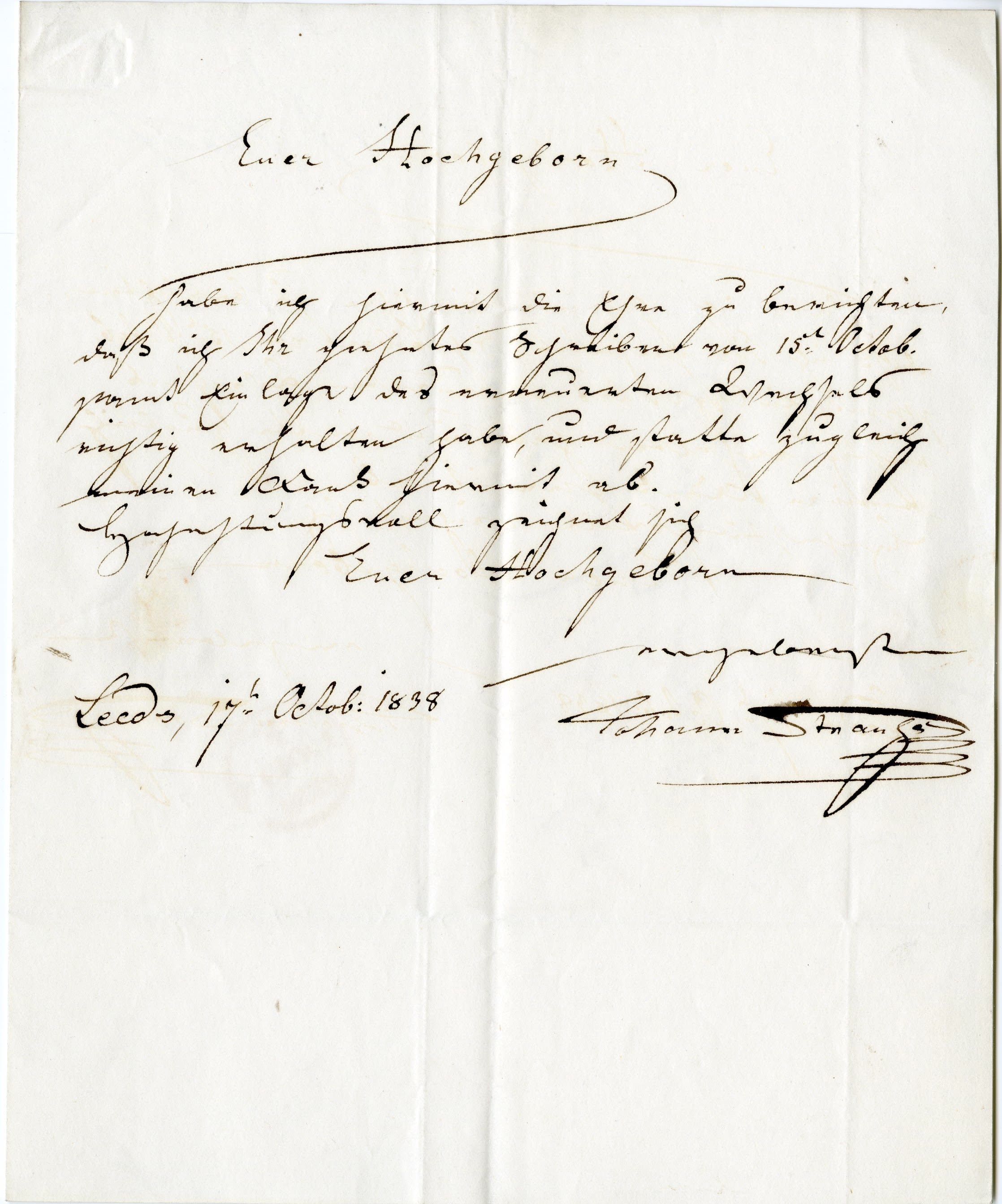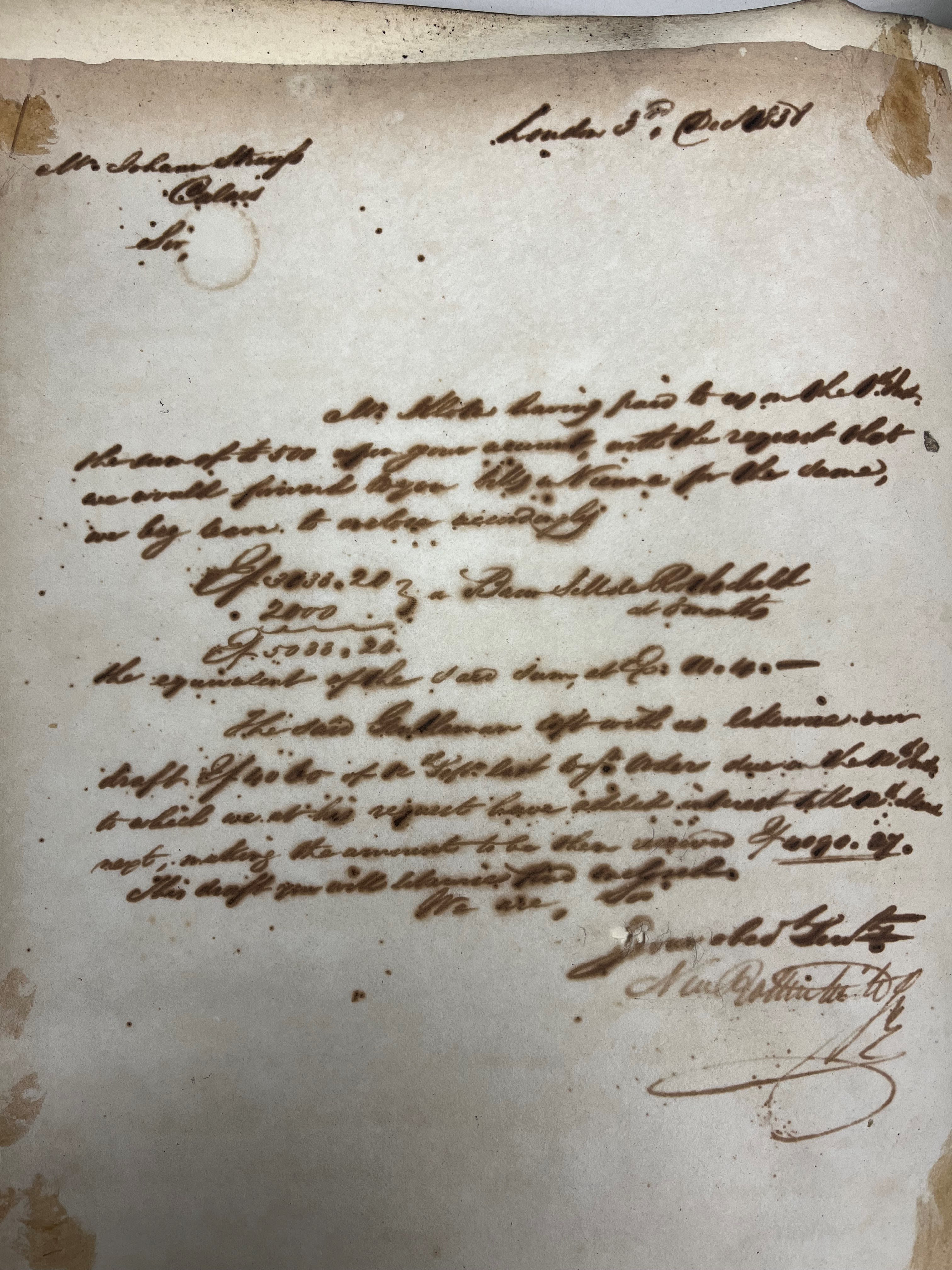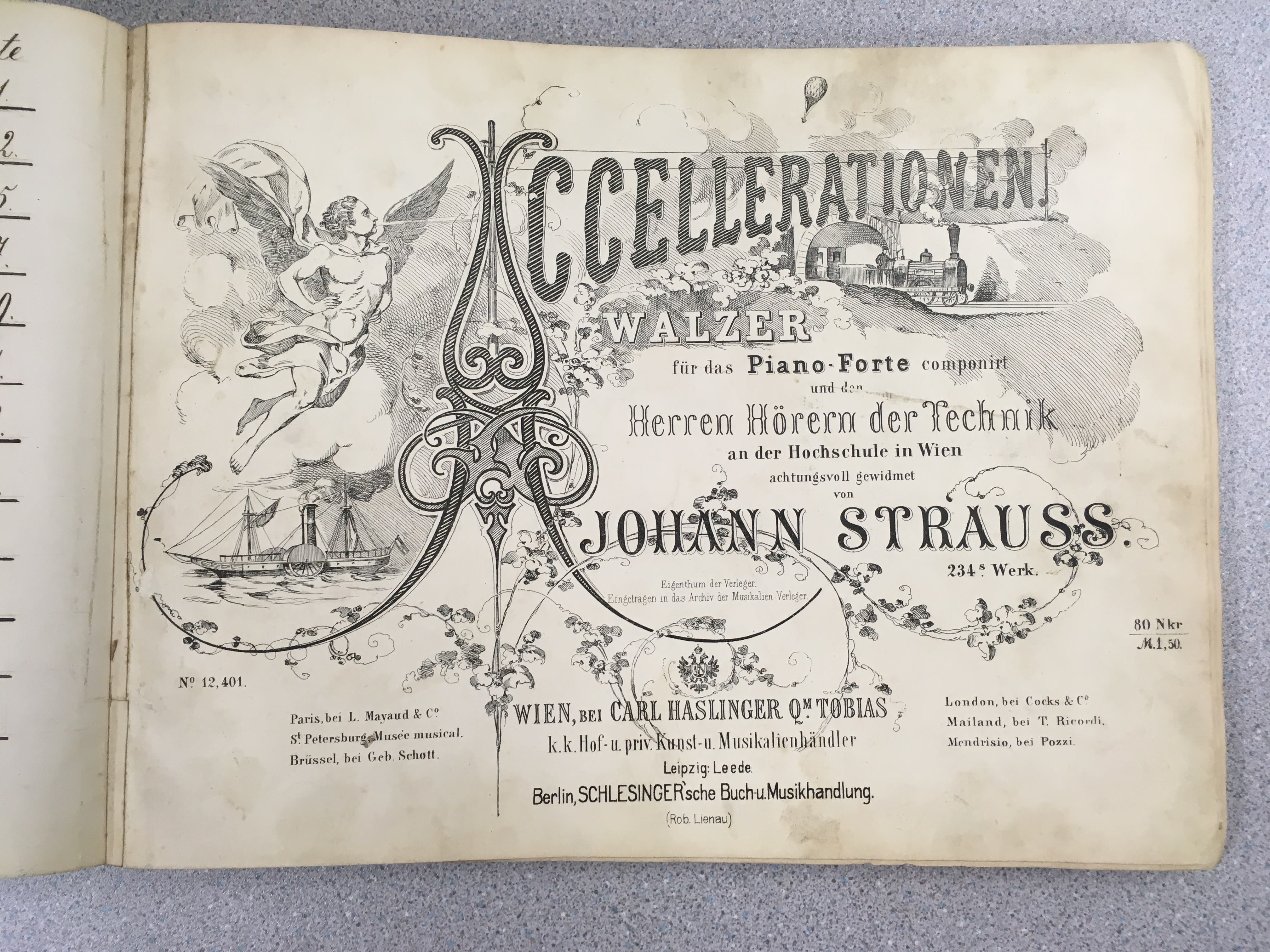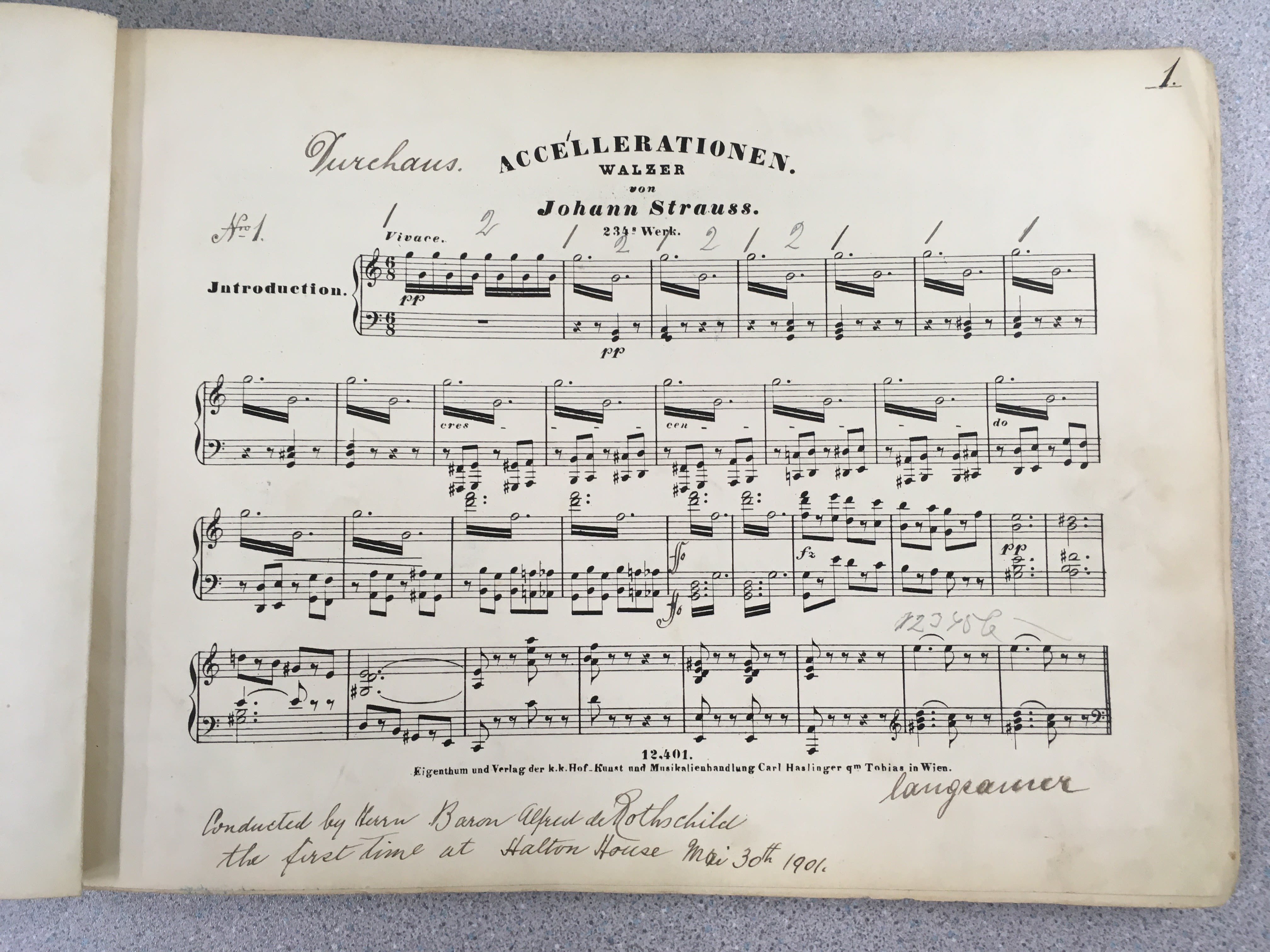It is said that Archivists are fond of anniversaries, and 2025 is a particularly exciting year. To commence the celebrations, we look to Vienna, a city which played an important role in Rothschild history.
In Vienna, the New Year is traditionally celebrated with a concert by the Vienna Philharmonic Orchestra, performed in the beautiful Golden Hall of the Musikverein. The performance culminates with the audience clapping along while the orchestra plays one of the most recognisable pieces of classical music composed: the Radetzky March. The Radetzky March (first performed in 1848), together with the Blue Danube waltz, has become the unofficial national anthem of Austria. Both pieces were composed by a father and son bearing the same name – Johann Strauss.
This year is the 200th anniversary of the birth of Johann Strauss the Younger (1825-1899), and festivities are being planned to honour Vienna’s appropriately named ‘Waltz King.’ More information about the celebrations can be found in these links:
Strauss prolongs his stay in Britain - and seeks Rothschild help to do so
The company of composers and performers has been a recurring feature of Rothschild family history, with many composers using the Rothschild financial services: Chopin, Liszt, Paganini and Rossini to name a few.
In 1838, Johann Strauss the Elder (1804-1849), composer of the Radetzky March, wrote to Lionel de Rothschild at New Court to request an extension on a bill of exchange in order to prolong his stay in Britain. Strauss was touring extensively; between April and July 1838 he and his orchestra performed seventy-nine times in London alone, including at events hosted by Queen Victoria, the Duke of Wellington and Lionel’s wife, Charlotte de Rothschild. After their time in London, Strauss and his orchestra embarked on a tour of Great Britain, often travelling by a revolutionary new mode of transport – the railways.
Letters in the Archive show that the correspondence between the two took place towards the end of 1838, when Strauss was in Leeds and Sheffield. However, Strauss was not in good health – concerts in Derby and Leicester had been postponed under doctor’s orders. And so, after a successful eight months of touring, Strauss and his orchestra began their return journey to Vienna.
The correspondence between Johann Strauss the Elder and Lionel de Rothschild in 1838.
Like his father before him, Lionel de Rothschild held the title of honorary Consul General to the Austrian Emperor, Ferdinand I. In this role, Lionel, as an official representative of the Austrian government in London, was to assist and protect citizens of the consul's country. This could be why Strauss contacted Lionel for financial assistance whilst in Britain. It is also possible that Strauss knew Lionel’s uncle, Salomon, in Vienna and may have engaged banking services at the Rothschild bank in the city.
The Rothschilds in Vienna
The House of Rothschild first became involved with Austrian finance in the early days of the 19th century. Prince Metternich, Austrian Minister for Foreign Affairs, and Count Stadion, Austrian Minister of Finance, were impressed with the reliability and integrity of the Rothschilds and recommended the family for an elevation to the Austrian nobility. Thus, the Rothschild family received the title 'von' by Imperial Austrian decree in 1817, and in 1822 the title of Baron.
Salomon Mayer (1774-1855) had been handling Rothschild affairs with Austria and moved to the city to establish a permanent presence. Rothschild operations in Vienna included financial advice, investment in the country’s railway network, and industrial enterprise. The Witkowitz iron and steel works remained in Rothschild hands for nearly a century. However, with the Anschluß in 1938, Witkowitz, along with the banking house, was confiscated from the Rothschild family. After the Second World War, the family was paid a small compensation, but did not return to the city. The few surviving records of a once mighty business were transferred to The Rothschild Archive in 2001 from the Russian Federal Archive Service. Although previously believed to have been lost, the records had been held in Moscow for over 50 years.
Music at Rothschild & Co
A Strauss musical score belonging to music connoisseur Alfred de Rothschild, one of Lionel’s sons.
The music of Strauss the Elder and the Younger continues to be admired and honoured. Here at Rothschild & Co there has been a Music Society based at New Court in London since at least 1899, which celebrates music in a variety of forms: regular evening concerts, quarterly lunchtime concerts featuring professional and renowned musicians, and more recently, yearly concerts featuring our talented colleagues. No doubt a Strauss composition will be heard flowing through the office corridors in this the year of Vienna’s Waltz King!
You can learn more about one of our most recent Rothschild & Co Music Society events on Instagram here.




